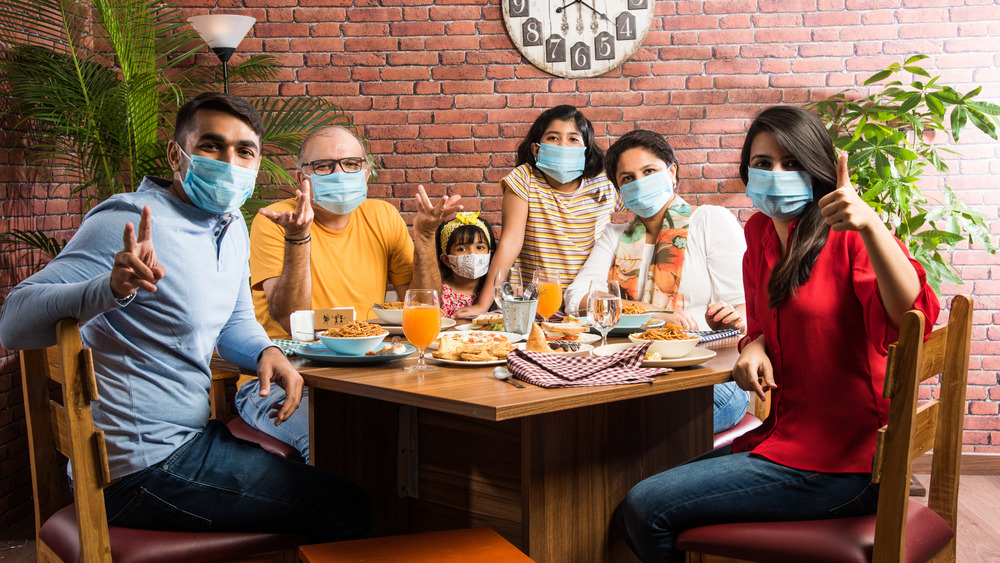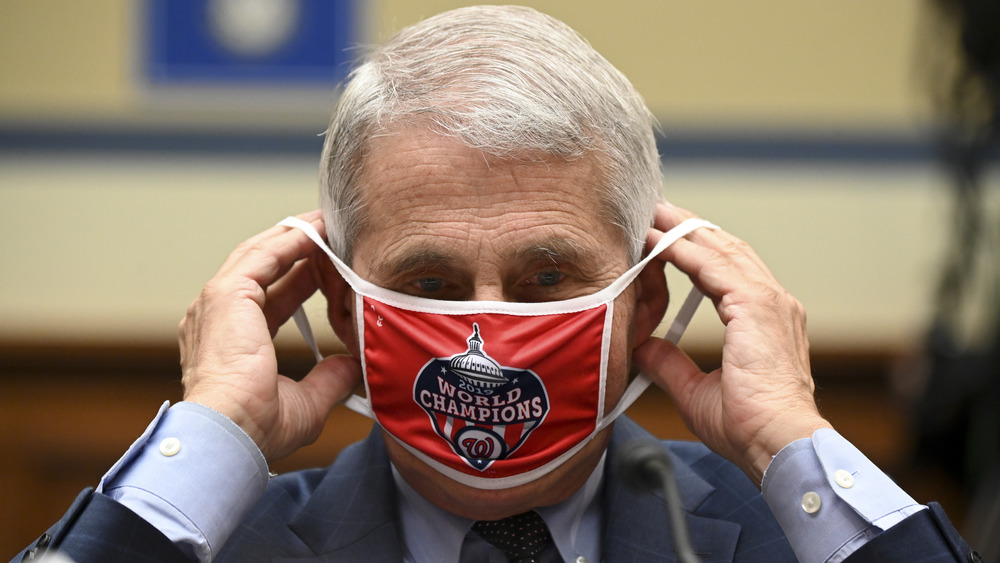What Dr. Fauci Says You Should Do With Your Mask When Eating
There's no question that Dr. Fauci is one of the strongest advocates of face masks. And as the head of the National Institute of Allergy and Infectious Diseases, he strongly urges people to wear them in one place most of us don't. When dining out, many of us breathe a sigh of relief when we sit down at the table and remove the mask. But Fauci, speaking to Trevor Noah, said that's the wrong way to approach eating in public (via YouTube).
"I think that because there's enough movement of people that are usually within 6 feet that you probably should [wear a mask]," said Fauci. "What I do is I put it around my neck, then I can eat or drink, and then I can put it back up when you're waiting for the waiter."
Fauci demonstrated that he raises and lowers the mask by the straps, to avoid contact with the front surface that could be contaminated. The World Health Organization advises washing hands thoroughly any time you have to touch the front of your mask, according to BestLife.
One more place you should mask up
Fauci is also urging people to don masks at Thanksgiving gatherings for this year, according to KTLA. "Even if it's a very small group, to the extent possible, keep the mask on," he told YouTube.
Fauci did caveat that if people attending have tested negative for COVID-19, you don't need to be quite as diligent about masks. But, in the wake of soaring infection numbers, the overall message he is communicating is one of caution.
Even with vaccines moving through development, masks may be part of our lives for some time to come (via the Philadelphia Inquirer.) On a Zoom conference with Thomas Jefferson University, Dr. Fauci commented that it will take a while to reach herd immunity and we'll still need to be protective of our health in the meantime. "You're not going to have a profound degree of herd immunity for a considerable period of time, maybe toward the end of 2021, into 2022," he said. "I feel very strongly that we're going to need to have some degree of public-health measures to continue. Maybe not as stringent as they are right now."


